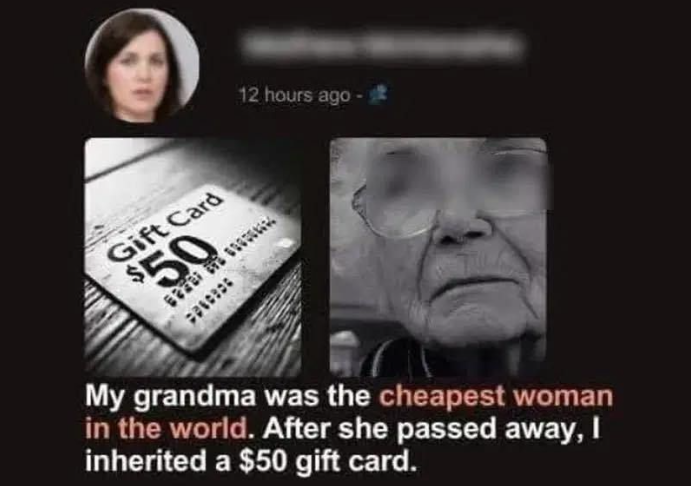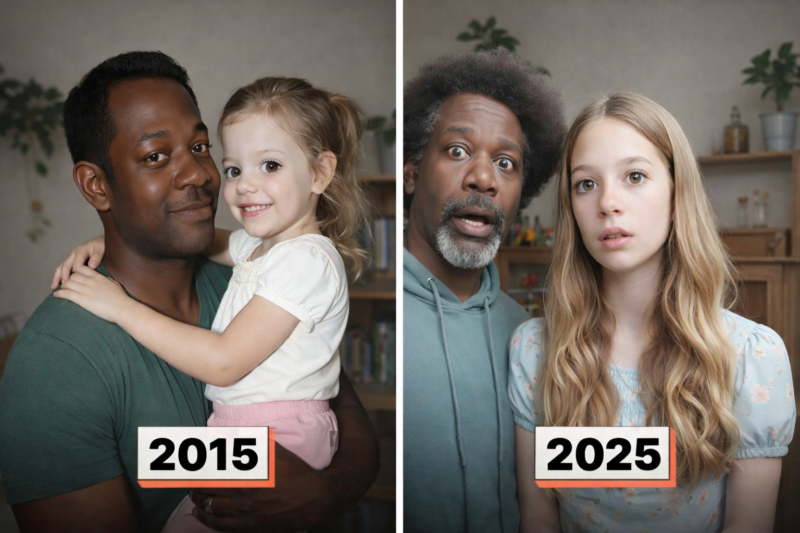When I reflect on my grandmother, Margaret Harper, the word that surfaces first is thrifty. She was the kind of person who washed and reused Ziploc bags, faithfully clipped coupons from the Sunday newspaper, and preserved every rubber band, twist tie, and grocery bag as if they were treasures passed down through generations.
To her family, she was endlessly loving—warm and devoted in every way. Yet, we also saw her as a touch old-fashioned, perhaps even quirky, in her steadfast commitment to a life of frugality and simplicity.
Margaret Harper didn’t own lavish clothing or drive a sleek car. She lived in the same humble house for over four decades, its walls adorned with faded floral wallpaper, its rooms furnished with pieces unchanged since the 1970s. Every choice she made seemed to stem from a single guiding question: Is this something I can live without?
She often shared her favorite saying, “A penny saved is a penny earned,” and taught us that true abundance came not from what you possessed, but from what you didn’t require.
We smiled, nodded, and cherished her eccentricities. But we never dug deeper. We never thought to ask why she chose to live this way.
That changed when she passed away.
The Gift Card
It was a chilly February morning when we laid Grandma to rest. Her passing, though not sudden, left a heavy ache—she had lived a long, vibrant life, but that didn’t soften the loss. In her will, she left each of us a small keepsake, nothing grand, just tokens she thought we’d hold dear.
For me, it was an envelope. Inside, I found a $50 gift card to a local department store—a simple, standard card with no note, only my name written in her elegant cursive.
At first, it didn’t strike me as significant. It was a sweet gesture, but unusual for Grandma. She wasn’t one for gift cards; she valued handwritten notes and thoughtful, personal gifts. This felt almost… detached.
I considered passing it along or donating it to someone who might need it more. But something about it lingered in my mind. Perhaps it was because it was the last gift she’d ever given me.
So, one Saturday afternoon, I went to the store, planning to buy a new jacket or some household essentials.
I handed the gift card to the cashier without much thought. Then, something unexpected happened.
She scanned the card, paused, and looked at me with wide eyes. Her expression shifted from routine indifference to puzzlement. She scanned it again.
Then she called for the store manager.
A Secret Unveiled
I was escorted to a small office behind the customer service desk. The manager, a kind-eyed woman in her middle years, sat across from me and asked gently, “Where did you get this card?”
I explained that it was a gift from my grandmother, Margaret Harper.
Her demeanor softened entirely. Her professional posture melted, and her eyes glistened with warmth.
“You don’t know, do you?” she said softly.
I shook my head, bewildered.
Then she shared something unforgettable.
“Your grandmother was one of our ‘Silent Angels,’” she said.
For years, Margaret Harper had been quietly purchasing gift cards from that store—sometimes $20, sometimes $50, occasionally more. She’d leave them with employees, along with a simple request: Pass this to someone who needs it. But don’t say who it’s from.
She never sought recognition. Never left her name. She’d hand the card to a cashier or service worker, quietly point to a struggling mother counting coins or a weary shopper at the checkout, and say, “Please—make sure they get this.”
She visited regularly, always dressed simply, always courteous, always a bit enigmatic. The staff called her The Angel in Disguise.
And the card I held—the one I’d nearly given away—was the last one she’d ever purchased.
A Heart Transformed
I left the store with tears streaming down my face. Not from grief, but from seeing my grandmother—truly seeing her—for the first time.
All those years, we thought her thriftiness was about pinching pennies, maybe even hoarding. But now I understood. She wasn’t saving for herself—she was saving for others.
She didn’t wear fine clothes or drive a luxurious car because she chose simplicity to give generously. And she did it all without a trace of pride or need for praise.
She showed me that you don’t need riches to be wealthy. A life of purpose and kindness can be built in the quietest moments.
I thought about that card for days. Then, one week later, I found myself in a small downtown diner. At the booth beside me sat a young mother with her son. She was rifling through her wallet, counting change, her face tense with worry.
I reached into my purse, pulled out the gift card, and handed it to her.
“No expectations,” I said. “Just… pass it on someday.”
Her eyes filled with tears. She nodded, barely able to speak. I smiled, stood, and walked away, my heart racing.
It was a small act. But it felt like the most meaningful thing I’d ever done.
Carrying Her Legacy Forward
That moment reshaped me in ways I can’t fully describe. I started volunteering more. Giving more. Listening more.
Eventually, I created a small charitable fund in her name—The Harper Heart Fund—dedicated to anonymous acts of kindness: grocery cards for single parents, winter coats for shelters, modest scholarships for students struggling to afford books.
I didn’t start it for attention. I started it to say thank you.
Thank you, Grandma, for showing me what it means to give selflessly.
Thank you for proving that one quiet act of love can echo across time.
Thank you for leaving not just a card, but a guiding light.
In a world captivated by visibility, where kindness is often shared for likes and applause, my grandmother taught me a deeper truth:
The most profound acts of love are often the ones no one sees.
She didn’t need a spotlight or praise. She needed only a moment, a heart, a need—and she met it.
Now, I carry that lesson with me. In my wallet, I keep one gift card, always waiting. Waiting for the right person, the right moment.
Because I want to be someone’s Angel in Disguise.
Just like Grandma.




